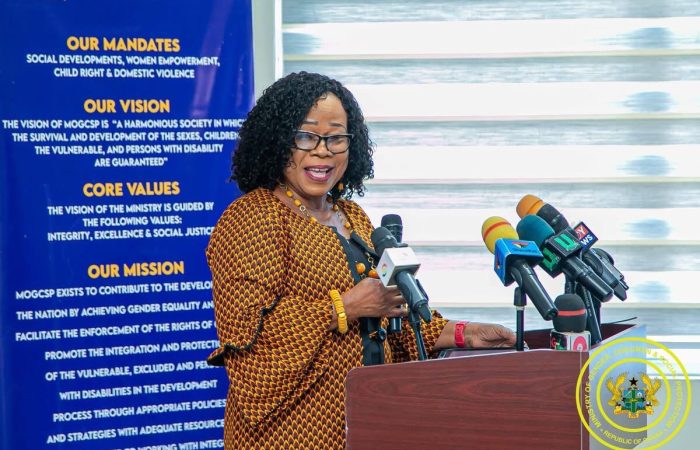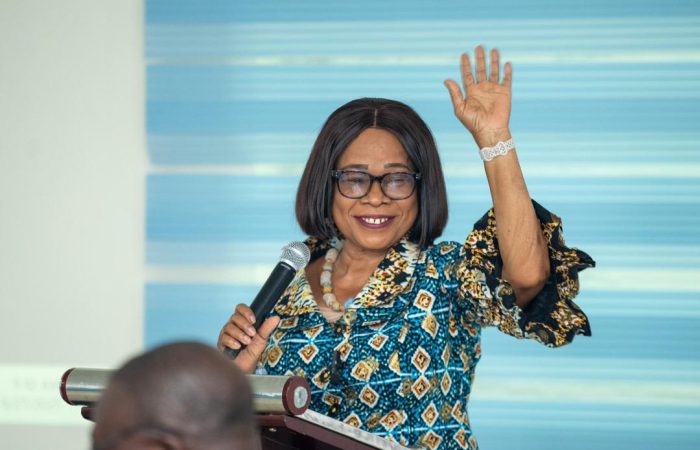In a largely patriarchal society, many thought she had shattered the proverbial glass ceiling when she became a District Officer in 1975. But for Katherine Ichoya, who returned home recently after a two-decade international career, it has been a journey of creating change for women especially in the financial world.
Ms Ichoya is the former CEO of Femcom, a Comesa institution that fosters empowerment of women in business in 21 African countries.
She is also a gender activist.
The Nation first met the Harvard-trained public administrator during this year’s Women in Real Estate Society (WIRE) Legends and Leaders Annual Conference in Westlands, Nairobi.
Ms Ichoya was the keynote speaker at the ceremony.
When she took to the podium, her passion for women’s empowerment was evident from her demeanour and speech.
“Women can take charge of their own success. They should understand their context, uncover what they really want, discover their definition of success, identify their strengths and weaknesses, and set goals to overcome the glass-ceiling barriers.”
Many refer to her as a gender activist, a title she has gladly accepted, despite the negative connotation sometimes associated with it.
Having scaled the heights at a time women faced challenges climbing the social ladder, Ms Ichoya stands out as a trailblazer.
So where did it all begin?
Her father’s decision to enrol her mother for English classes and driving lessons in the 1970s greatly impacted her attitude in life.
“My dad was a businessman who could only utter a few words in English. Despite that, he saw the need to ensure my mother learnt the Queen’s language and this opened many opportunities for her,” says Ms Ichoya.
“When I look back, I see the genius of his action. After he passed on, I saw how easily my mother was able to fit into his shoes because she was empowered.”
A Bachelor of Arts graduate from the University of Nairobi, Ms Ichoya, who hails from Muthiga village in Kiambu County, first worked at the National Bank of Kenya where she rose from a junior trainee officer to a bank manager in just ten years.
“This was a defining moment in my life. I saw how women struggled to establish themselves financially because they did not have property to secure loans,” she says.
“During my work, I always questioned why we would visit women’s groups asking them to deposit money with us yet we did not have policies for them to be able to borrow,” she recalls, saying, “In other words, there was a time in this country when banks were just mobilising money from women but when it came to borrowing, it was very difficult for the same women to do so.”
She describes that kind of system as ridiculous because most women did not own land and therefore, had no title deeds, a crucial collateral for credit.
LETTERS OF CREDIT
She used her position as bank manager to make it possible for women to borrow money. She could prepare letters of credit and have those with cars use their logbooks to acquire loans, a move that landed her in trouble with her bosses.
“One day the general manager called me to his office and said, ‘Katherine NBK is not a social entity, it’s a commercial one. If you feel so strongly about helping women, you can resign and do it from outside,” she says.
She is nonetheless proud of her actions.
“I have seen women move progressively to a point where they would make their own money and bloom. Many entered into businesses previously perceived as a reserve for men.”
While joining the International Federation of Business and Professional Women (IFBPW-Kenya chapter) helped her better understand the issues women were grappling with, she progressively started questioning policies.
“This is the kind of work I have been doing at Comesa and this is what my life has been all about – laying down structures for women economic empowerment and ensuring they have access to credit.”
Her 44-year-long career has seen her globetrot in her quest to bring change and empower women. One memorable experience was a trip to Holland as a volunteer of IFBPW-Kenya chapter. She was accompanied by a group of women from the Maasai and Kamba community.
They were on a mission to get former minister, currently nominated Senator Beth Mugo, elected for position of IFBPW president.
“On the day of the meeting, something very interesting happened. The women who had carried some kiondos and beadworks merchandise lined up the streets and started selling!” Of course that is not how things run in that country, she adds, breaking into a hearty laugh, “but the Kenyan Embassy came to our rescue and from that. Upon our return home, the women got space to exhibit their crafts in major international hotels.”
That incident, she adds, taught the women a big lesson on linkages between the elites and the rest of the womenfolk, something she says lacks today.
At Comesa, where she worked as the Head of Gender and Women in Business for ten years, she is credited with contributing immensely to gender mainstreaming in the region, by championing and facilitating formulation of a gender policy, a document that was endorsed by Heads of State in 2012, and from which the African Union borrows heavily.
She says this has helped to see more women get promotions to senior position within Comesa and many more employed to bridge the gender gap.
Ms Ichoya’s greatest challenge came when she was seconded to Malawi to establish Femcom, which is French for National Associations of Women in Business in Eastern and Southern Africa.
The institution is founded on the idea that regional economic integration cannot succeed without the full involvement and equal participation of women in business.
While it was created in July 1993, it remained under the Comesa Secretariat until 2008 when a Heads of State summit in Nairobi recommended the need for it to be a stand-alone entity and establish its own secretariat in Lilongwe, Malawi in 2009.
WOMEN ENTREPRENEURS
Ms Ichoya was tasked with this responsibility.
“Establishing a regional institutional in a foreign country is no walk in the park. To put it simply, I had been given an empty building and asked to establish an institution that would serve 19 countries. So you have to put in all the administration structures, policies, staffing and all,” Ms Ichoya says.
“To say that I had been thrown into the deep end would be an understatement.”
A decade later, Femcom is now active and has national chapters in all 19 Comesa member States.
On the achievement she is most proud of, Ms Ichoya says, “We have done a lot as a team. But I think Wise Bank in Burundi and the Comesa First Ladies Roundtable does it for me.”
In Kenya, Femcom’s national chapter is known as Federation of Women Entrepreneur Associations (FEWA).
The organisation’s major project is the Business Incubators for African Women Entrepreneurs (Biawe) project, which aims at increasing the number of women entrepreneurs in the continent. It is implemented in four countries.
“While women remain humble and maintain integrity, it is time the message was driven home that when women thrive, families, communities and nations win. When women thrive, businesses win. We must assess the barriers and overcome them.”
As the Covid-19 pandemic moves beyond a global health crisis and morphs into a labour market, social and economic crisis, UN Women is raising the red flag over the threat the pandemic poses to women’s employment and livelihoods. It has deepened pre-existing inequalities, and exposes cracks in social, political and economic systems.
“There is no doubt Covid-19 is turning out to be a gender biased crisis if its impact on women-owned businesses is anything to go by. We now know that majority of women, more than 60 per cent, work in the informal economy, where they earn less, save less and are usually the first casualties when a crisis of Covid-19 proportion hits,” says Ms Ichoya.
“The government needs to prioritise gender equality and women’s economic empowerment in the Covid-19 crisis response and recovery.”
Credit: Daily Nation


